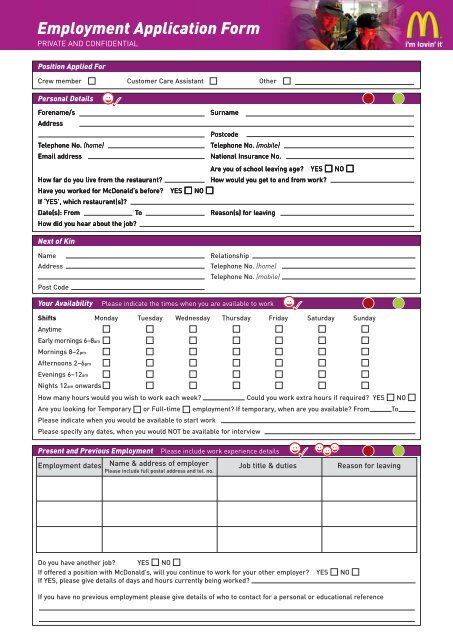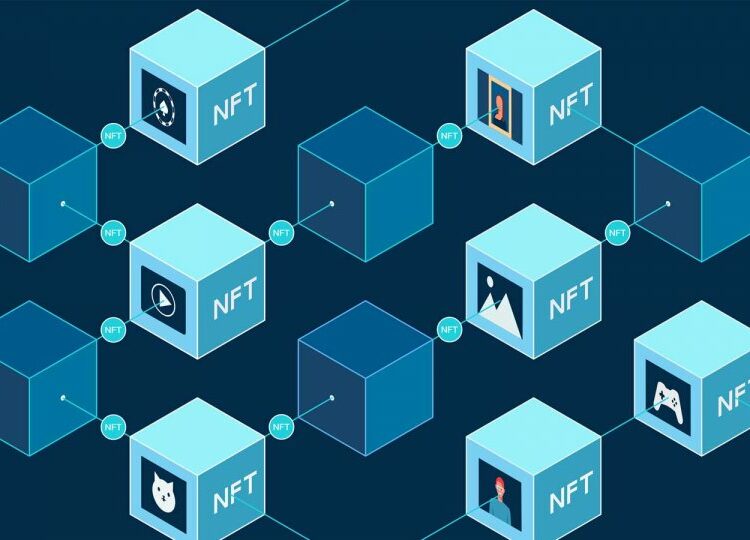The nursing profession is rapidly evolving, with an increasing demand for advanced practice nurses. While traditional pathways typically require a Bachelor of Science in Nursing (BSN), masters degree nursing programs provide a faster, more efficient route for individuals with non-nursing backgrounds to enter the field. These programs equip graduates with the necessary knowledge and skills to prepare for the NCLEX-RN exam and pursue various advanced nursing roles.
Toc
- 1. Understanding Masters Degree Nursing Programs
- 2. Direct Entry Masters Degree Nursing Programs
- 3. Traditional Masters Degree Nursing Programs
- 4. Related articles 01:
- 5. Choosing the Right Masters Degree Nursing Program
- 6. The Application Process
- 7. Resources and Support for Aspiring Nurses
- 8. Related articles 02:
- 9. Current Trends in Nursing
- 10. Frequently Asked Questions (FAQ)
- 11. Conclusion
Understanding Masters Degree Nursing Programs

Master’s degree nursing programs are crafted to equip aspiring nurses with the advanced knowledge and skills needed to thrive in diverse healthcare settings. These programs cater to individuals who aspire to enter the nursing profession, regardless of their previous educational background. Given the increasing complexity of healthcare, the demand for skilled nurses capable of taking on advanced roles is higher than ever.
Types of Master’s Degree Nursing Programs
There are several types of MSN programs available, each tailored to meet the needs of different students:
- Direct Entry MSN Programs: For individuals holding a bachelor’s degree in a non-nursing field, these programs allow students to transition directly into nursing without first obtaining a BSN.
- Traditional MSN Programs: Designed for registered nurses with a BSN, these programs build upon existing nursing knowledge and skills to prepare graduates for advanced practice roles.
- Accelerated MSN Programs: These programs offer a fast-track option for individuals with a bachelor’s degree in another field who wish to become nurses quickly.
Direct Entry Masters Degree Nursing Programs

Direct entry MSN programs provide a unique opportunity for those with non-nursing bachelor’s degrees to enter the nursing profession. These programs streamline the educational process, allowing students to complete their MSN in a shorter timeframe.
Advantages of Direct Entry MSN Programs
- Career Advancement: Graduates from direct entry MSN programs are well-positioned for advanced practice roles, such as Nurse Practitioner, Certified Registered Nurse Anesthetist (CRNA), and Certified Nurse Midwife (CNM). With an MSN, you can take on leadership roles and influence healthcare practices.
- Increased Salary Potential: Nurses with master’s degrees typically enjoy higher salaries compared to those with only a BSN. According to recent data, nurse practitioners earn a median annual salary of approximately $126,260, making this a lucrative career path.
- Flexible Learning Options: Many direct entry MSN programs offer online or hybrid formats, allowing you to balance your studies with work and personal commitments, making it easier to pursue your educational goals.
- Personal Satisfaction: Nursing is a profoundly rewarding profession, and direct entry MSN programs enable you to make a positive impact on patients’ lives and communities.
For instance, the Direct Entry MSN Program at [University Name] allows students with a non-nursing bachelor’s degree to complete their MSN in [Number] years. This program emphasizes [Specific Program Focus, e.g., community health, leadership, etc.] and features [Unique Program Elements, e.g., simulation labs, clinical rotations in diverse settings, etc.]. This program is accredited by [Accrediting Body, e.g., CCNE, ACEN] and has a strong reputation for preparing graduates for successful careers in [Specific Career Paths, e.g., family nurse practitioner, etc.].
Curriculum Overview
The curriculum of direct entry MSN programs is robust and designed to prepare students for the challenges of nursing practice. Key components include:
Core Nursing Coursework
- Foundational Nursing Concepts: Study essential subjects such as anatomy, physiology, and pathophysiology to build a solid foundation in nursing.
- Advanced Clinical Skills: Develop critical skills in areas like physical assessment, pharmacology, and diagnostic reasoning, which are crucial for effective patient care.
- Nursing Theory and Evidence-Based Practice: Learn about nursing theories, healthcare policies, and the importance of evidence-based practice in delivering high-quality care.
For example, students might take courses in Advanced Health Assessment and Pharmacology for Advanced Practice. These courses provide the necessary theoretical foundation and practical skills for effective patient care.
Clinical Rotations
Hands-on clinical experience is a hallmark of direct entry MSN programs. Students gain practical experience in various healthcare settings, including:
- Hospitals
- Community clinics
- Long-term care facilities
These clinical rotations are vital for developing the competencies needed to provide safe and effective nursing care.
Traditional Masters Degree Nursing Programs

1. https://toprunracing.vn/archive/3449/
2. https://toprunracing.vn/archive/3444/
3. https://toprunracing.vn/archive/3448/
For those who already hold a BSN, traditional master’s degree nursing programs offer an opportunity to deepen their knowledge and specialize in specific areas of nursing.
Benefits of Traditional MSN Programs
- Enhanced Knowledge Base: Traditional MSN programs build on the foundational nursing education received in BSN programs, allowing students to expand their clinical expertise and theoretical knowledge.
- Specialization Options: Students can choose from a variety of specializations, tailoring their education to their career goals and interests.
- Research and Leadership Preparation: Traditional MSN programs often include coursework in research methodologies and healthcare leadership, preparing graduates for roles that require advanced critical thinking and decision-making skills.
Specialization Options
Popular specializations within traditional MSN programs include:
- Nurse Practitioner (NP): Focus on providing primary and specialized care to patients.
- Nurse Educator: Prepare to teach nursing students in academic settings.
- Nurse Anesthetist (CRNA): Train to provide anesthesia care during surgical procedures.
- Nurse Midwife (CNM): Specialize in women’s health and childbirth.
Each specialization has its own set of coursework and clinical experiences, allowing students to become experts in their chosen field. The demand for Psychiatric Mental Health Nurse Practitioners is increasing due to rising rates of mental health conditions. This specialization requires advanced knowledge of psychopharmacology and prepares graduates to work in settings such as hospitals and community mental health centers.
Choosing the Right Masters Degree Nursing Program

Selecting the right master’s degree nursing program is crucial for your educational and career success. Here are some factors to consider:
Accreditation
Ensure that the program is accredited by recognized organizations such as the Commission on Collegiate Nursing Education (CCNE) or the Accreditation Commission for Education in Nursing (ACEN). Accreditation guarantees that the program meets high standards and adequately prepares graduates for professional practice.
Program Focus
Different MSN programs offer various specializations. Assess which areas align with your career aspirations and interests to find the right fit.
Faculty Expertise
Research the qualifications and experience of the program’s faculty. Instructors with practical experience can provide valuable insights and guidance throughout your education.
Program Format
Consider your learning preferences and lifestyle when choosing a program format. Options may include fully online, hybrid, or on-campus learning environments.
Cost and Financial Aid
Investigate the tuition and fees associated with the program, as well as available financial aid options such as scholarships and grants.
The Application Process
Navigating the application process for master’s degree nursing programs can be daunting. Here’s what to expect:
Application Requirements
Common requirements include:
- Transcripts from your non-nursing bachelor’s degree, typically with a minimum GPA of 2.8
- Letters of recommendation from academic or professional sources
- A personal essay or statement of purpose outlining your motivations
- A valid RN license (if applicable)
- A background check
Interview Process
Some programs may require an interview as part of the admissions process. This is an opportunity for the admissions committee to evaluate your passion for nursing and suitability for the program.
Deadlines and Notifications
Be aware of application deadlines and ensure that all required materials are submitted on time. Most programs will notify applicants of their admission status within a few weeks to months after the deadline.
Resources and Support for Aspiring Nurses
As you embark on your journey through a master’s degree nursing program, various resources are available to support you:
1. https://toprunracing.vn/archive/3449/
2. https://toprunracing.vn/archive/3444/
3. https://toprunracing.vn/archive/3447/
Professional Organizations
Joining organizations like the American Nurses Association (ANA) or the National League for Nursing (NLN) can provide networking opportunities, continuing education, and advocacy for the nursing profession.
Online Resources
Utilize nursing-focused websites and online communities to connect with peers, stay informed about industry trends, and access valuable resources.
Mentorship Programs
Consider seeking mentorship from experienced nurses or faculty members who can offer guidance and support throughout your educational journey.
Current Trends in Nursing

The United States is facing a critical nursing shortage, with projections indicating a deficit of [Number] nurses by [Year]. This shortage is driving a greater need for advanced practice nurses, who can provide specialized care and leadership in various healthcare settings. The American Nurses Association predicts that the demand for Nurse Practitioners will continue to rise in the coming years.
Additionally, the adoption of telehealth has transformed healthcare delivery, and MSN programs are adapting to this trend by incorporating coursework and clinical experiences in telehealth. Students are learning to provide virtual care, utilize telemedicine platforms, and manage patient data remotely, preparing them for the evolving landscape of nursing practice.
There is also a growing emphasis on population health, which focuses on improving the health of entire communities. MSN programs are incorporating this perspective into their curriculum, preparing graduates to address health disparities, promote health equity, and implement community-based interventions. This shift requires nurses to possess strong public health knowledge and skills in areas such as health education and community outreach.
Frequently Asked Questions (FAQ)
Q: What are the admission requirements for MSN programs?
A: Admission requirements vary by program but generally include a bachelor’s degree (BSN or non-nursing), a minimum GPA, letters of recommendation, and a personal essay.
Q: How long does it take to complete an MSN program?
A: The length of an MSN program depends on the structure and the student’s enrollment status (full-time or part-time), but it typically takes 2-3 years.
Q: What career options are available after completing an MSN?
A: An MSN opens doors to various advanced practice nursing roles, including Nurse Practitioner, Nurse Educator, Nurse Anesthetist, and Nurse Midwife.
Q: Are there scholarships or financial aid available for MSN students?
A: Yes, many MSN programs offer scholarships, grants, and other financial aid options. Students should explore these opportunities during the application process.
Q: What are the benefits of pursuing an MSN degree?
A: An MSN degree can lead to higher earning potential, greater job security, increased career advancement opportunities, and the ability to specialize in a particular area of nursing.
Conclusion
Pursuing a master’s degree in nursing programs is an excellent pathway for individuals seeking to enter or advance in the nursing profession. Whether you choose a direct entry or traditional MSN program, you will gain the advanced skills and knowledge necessary to thrive in today’s healthcare environment. As you explore various programs, consider your career goals and personal aspirations. Take the first step toward a fulfilling nursing career by researching accredited nursing schools and reaching out to admissions offices for more information. The future of nursing is bright, and with an MSN, you can play a vital role in shaping it.










